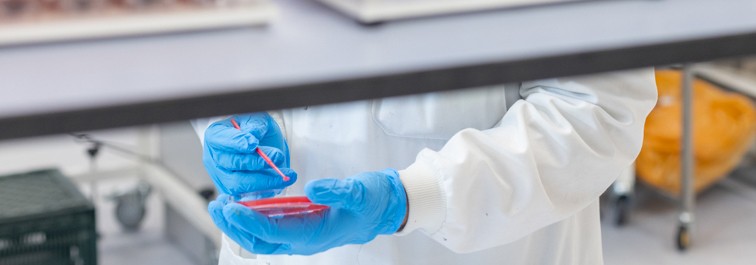This month Liverpool Clinical Laboratories (LCL), which was created to provide quicker and more accurate test results for patients across Cheshire and Merseyside, is celebrating its 10th anniversary.
During that time the staff at LCL, which is run by Liverpool University Hospitals NHS Foundation Trust, have processed more than 200 million samples, including half a million of these being COVID-19 tests.
“No one wants to be waiting longer than necessary to find out their medical test results,” said Michelle Martin, Automated Clinical Chemistry Lab Manager, who joined LCL when it was created 10 years ago.
“LCL was formed to make sure our hospital labs worked together to the same standard and using the same processes so that patients around Merseyside were all getting the same service and results within the same amount of time.
“It’s taken a lot of work to get here but now the whole laboratory system has improved, which means our patients are getting their results faster and the results are more accurate. Even though we work across multiple locations, our teams are working as one and the processes and systems we use are all consistent.”
There are four LCL sites employing over 670 people, based at Aintree University Hospital, Broadgreen Hospital, the Royal Liverpool University Hospital and Liverpool Women’s Hospital, and it’s in these labs that expert scientists test patient blood, tissue and swab samples to help diagnose and monitor disease, research the causes and cures of disease and evaluate treatments.
Michelle added: “As well as hospital patients, we also analyse patient samples from across Merseyside whether they’re collected at your GP, a local clinic or a walk-in centre. We test for a wide range of conditions – cancers, endocrine disorders such as diabetes and hormone imbalances, as well as haematology disorders and infections in the blood.
“At Aintree Hospital our Major Trauma Unit sees many incidents where a patient needs an urgent blood transfusion, and our team are able to act quickly to get that much needed blood and aid in their recovery.”
During the COVID-19 pandemic, the labs proved to be a real success and LCL processed half a million saliva screening samples, which was only possible by adapting quickly and vastly increasing their testing capacity for virology, which includes virus’ such as flu and COVID-19.
“It was a challenge, but we created a whole new lab area in response to the high level of COVID-19 testing for swabs coming in from people all over Merseyside. The automated machinery that we have in the labs today is much more efficient compared to what we were using 10 years ago, and it helped make the scale of testing required during the pandemic possible with a fast turn-around for results.
“There’s been so many changes over the last decade, the most recent being a new state-of-the-art laboratory and pharmacy building on the Royal site. Two years ago Broadgreen Hospital was upgraded with new equipment, and over the next 12 months we will also be bringing in new and enhanced equipment on the Aintree site.
“Our IT systems and analysers now all work in harmony together across our hospital sites too. This all together means we deliver diagnostic test results quicker for our patients, with more detailed and accurate data so that our doctors can discuss with our patients the next part of their treatment journey.”
